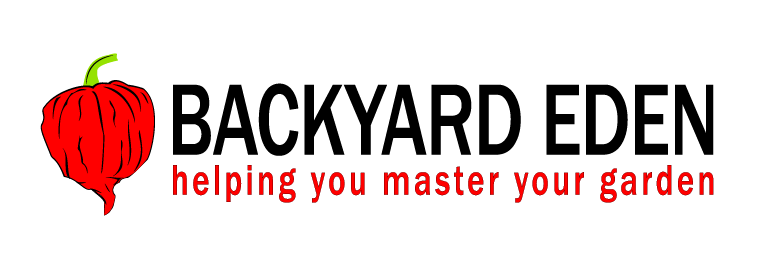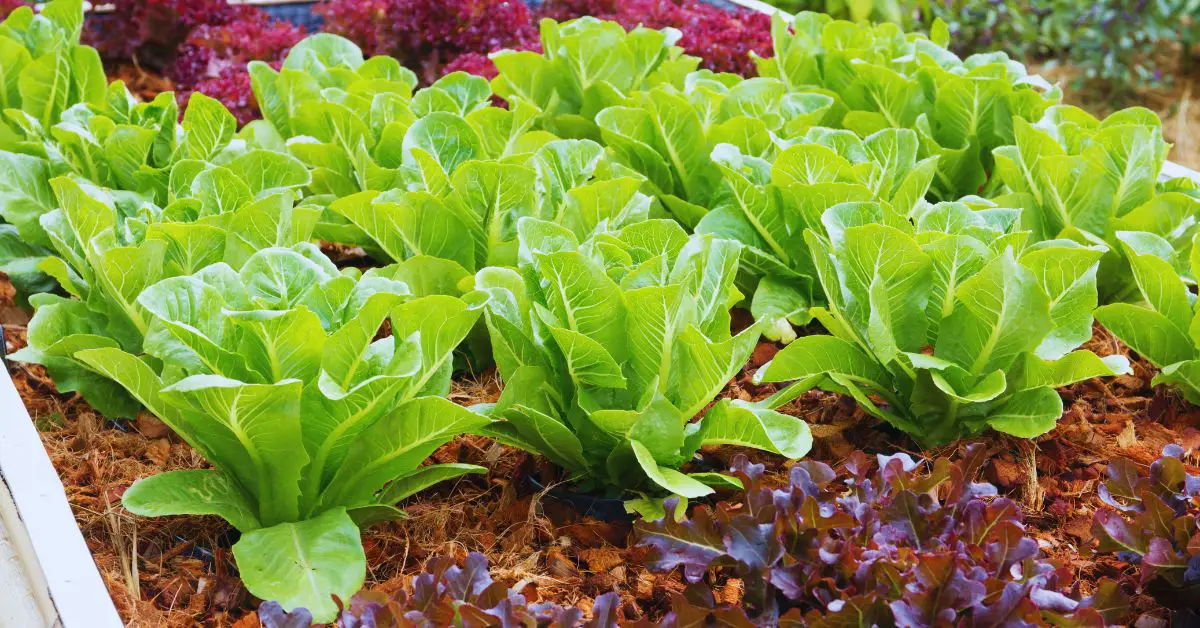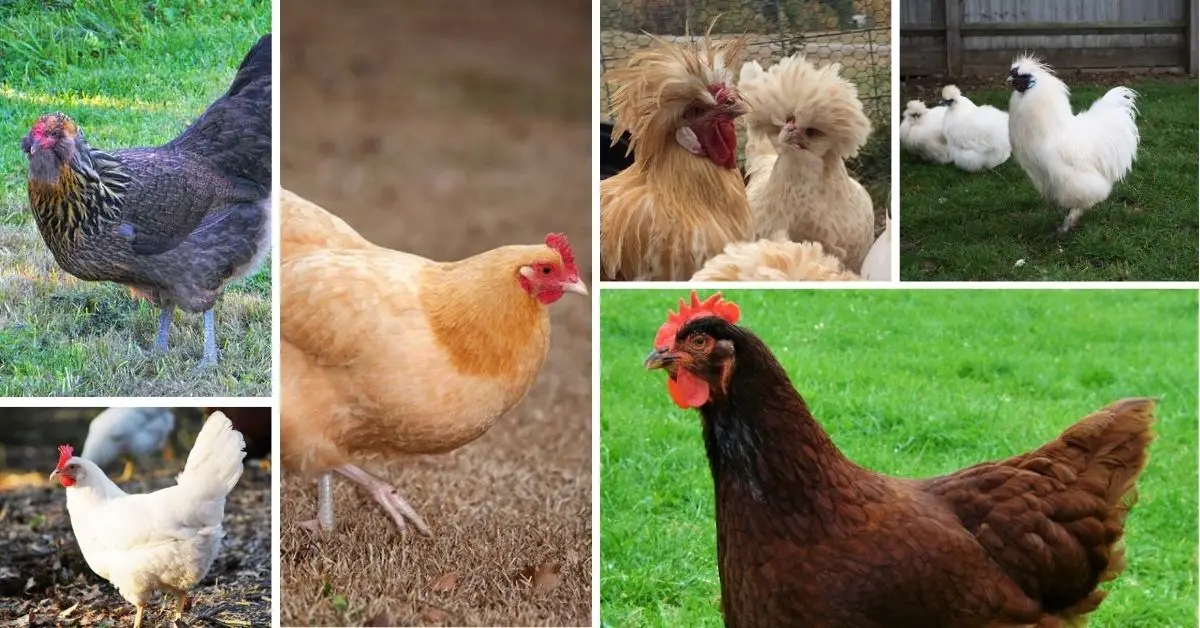If you could plant something one time and potentially eat from it for a lifetime..Would you do it? It is possible! Here’s how…
Annuals: The Norm
Gardeners throughout the world are familiar with annual vegetables and most plant them every year. Annuals are the ones you have to plant every year which give a harvest all season long until the first frost of the year that usually comes in late fall. Annuals are great because they can provide a bountiful harvest of a variety of vegetables such as tomatoes, cucumbers, melons and squash. Everyone should grow perennials in their garden.
Perennials: New Generation
On the other hand, flower and herb enthusiasts are very familiar the concept of perennial plants. Perennials are plants that you plant once and come back every year. How great is it to plant your favorite flowers in a particular spot once and not have to worry about having to plant them again? It is awesome! Just like perennial flowers, there are numerous types of perennial vegetables that can be treated the same way. Once these plants are established in your garden or patch, they will continue to produce a harvest year after year.
Pros vs Cons
Perennials bring a lot to the table in terms of pros. For example, planting those perennials can reduce the amount of work that you have in the garden because once established, perennial vegetables practically take care of themselves. Established perennials tend to be more resistant to pests and diseases, which will in turn make them more consistent producers. Perennial vegetables also start earlier and finish later meaning they have a longer period of time to harvest delicious veggies. These reasons make it a no brainer to grow perennials in your garden.
Uses
Perennial vegetables can also serve multiple purposes. Many perennial vegetables are also beautiful, serving as an ornamental plant for your landscape. Some perennial vegetables can act as a hedge or ground cover, while others can provide shade and habitat for insects and pollinators. A few perennial vegetables can actually enhance the health of the soil for themselves and surrounding plants, increasing the health of your garden as a whole.
With the major benefits and no real draw backs to growing perennials in your veggie patch, I have decided to focus on growing more in our urban farm.
Here are a few that I’m focusing on growing where I am (zone 8a)…
1.Egyptian Walking Onions:
Walking Onions are an interesting addition to any home garden. They have a great flavor and produce very well. They got their name because of the way they multiply. The bulb that is planted grows a green shoot like a normal onion but when the onion is ready, it grows a cluster of bulbs on top. As the cluster grows, they weigh down the stalk and cause it to fall to the ground. The cluster takes root and soon you have another onion plant growing. They can quickly spread and before long you will have a steady supply of onions and green onions.
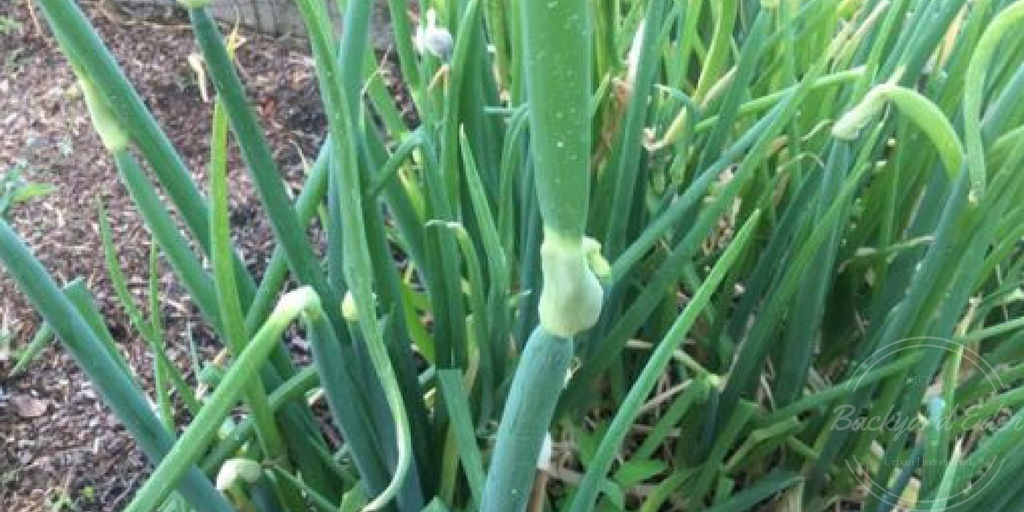
Walking Onions are quite hardy, growing well in zones 3-9. Plant sets approx. 2 in. deep in well draining soil, 6-10″ apart. You can plant them any time of the year, as long as the ground can be worked. They do well in full sun or part shade.
2.Jerusalem Artichokes
A beautiful plant that is not actually an artichoke but rather related to the sunflower that is grown for their edible tubers. They are easy to digest and make a great substitute for potatoes. There are even some studies happening in Asia that claim that they prevent Type II Diabetes. Jerusalem Artichokes aka sunchokes grow like weeds, and can quickly take over your garden bed if you don’t harvest them regularly.
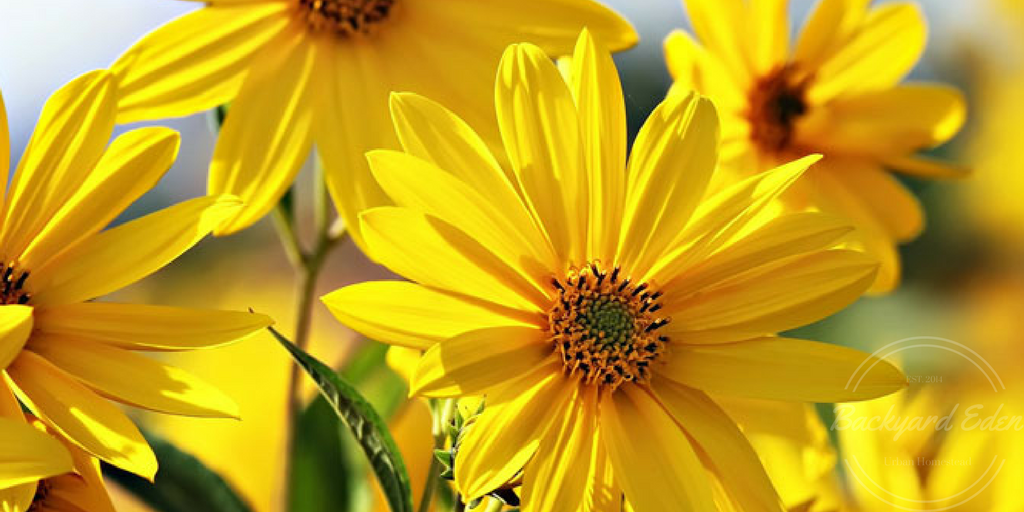
They prefer a garden bed filled with rich organic compost in full sun. They grow tall, up to 12 ft., so place them somewhere where they won’t shade other crops that need sun.
3.Globe Artichokes
Globe Artichokes not to be confused with Jerusalem Artichokes, produce incredibly tasty flower buds. The buds are eaten before they open and bloom. The base of the leaves as well as the heart are edible and absolutely delicious. There are a ton of super delicious recipes that you can make with artichokes.
Most nurseries at least in my area do not carry Artichokes, so I plan on starting mine from seed. They are easily grown from seed and can be started indoors in January, planting them 1/4″ deep in seed starting mix. Once the plants have grown several inches and have at least 2 sets of true leaves, they’re ready to be transplanted outdoors after all danger of frost is past.
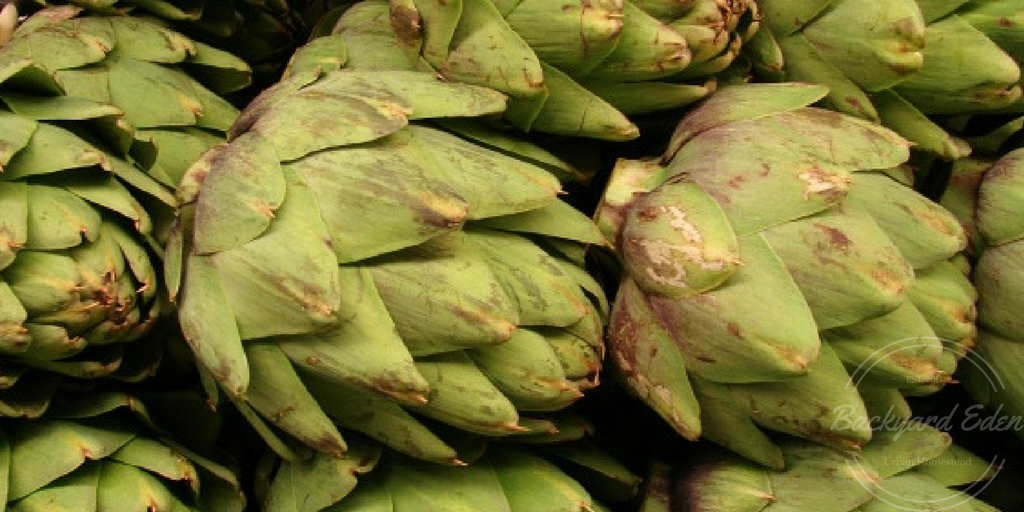
Artichokes grow best in zones 7-11. Transplant seedlings into a bed with rich organic matter, spacing them about 2-3 ft. apart. They tend to do better with some partial afternoon shade as they tend to not like our extreme summer heat here in the south.
Artichokes come up in the spring and produce flower buds to be harvested before they die back to the ground in the summer. Our artichokes usually come back in fall, when the cooler temperatures have returned, and more times than not we get a second, smaller crop before winter kills them back again.
Also read: Starting seeds indoors
4.Asparagus
Asparagus is another great perennial to grow in your backyard vegetable garden. It is one of my favorite plant-it-and-forget-it crops, asparagus is almost maintenance free and very dependable. It is very easy to start from seed, however it takes several years to get established. You can get an earlier crop if you start with 2 year old roots, which are normally available at your garden supply in January.
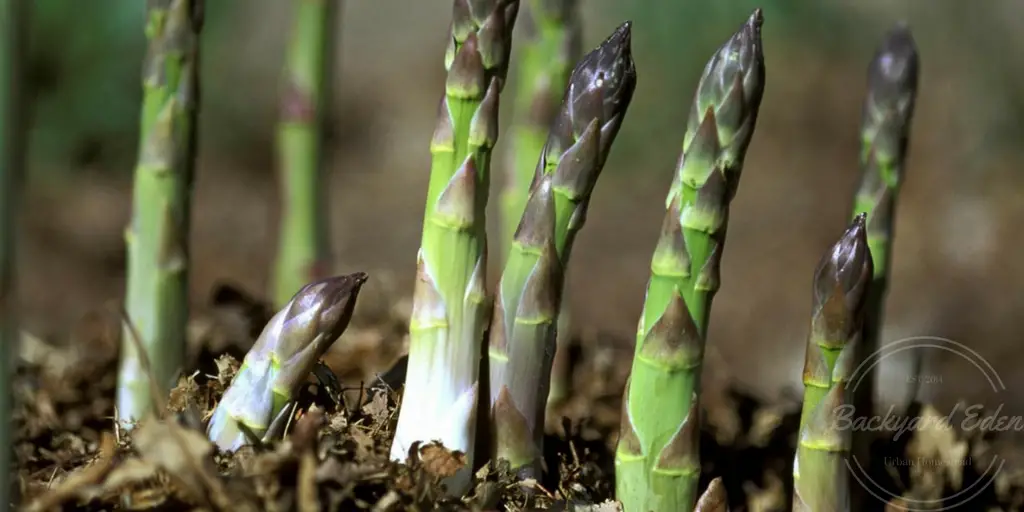
It grows in zones 3-8, with certain varieties doing better than others in particular climates, so do your research before planting. Asparagus plants love good rich soil that has plenty of compost; if you have clay like I do you might consider putting asparagus in a raised bed for best results. Dig a trench 4″ deep and 10″ wide, set crowns in the bottom and fill back in with loose, rich soil. Top dress with a healthy layer of compost after planting your roots.
Also read: How to compost using free local resources
5.Garlic
I know what you are thinking, garlic as a perennial; but it can be done. You can grow garlic as a perennial by leaving them to go to seed and they will multiply much like onions. Garlic is one of the easiest things to grow. My first planting actually came from store bought garlic. Even though planting from store bought will result in great homegrown garlic; a better selection of varieties are available online.
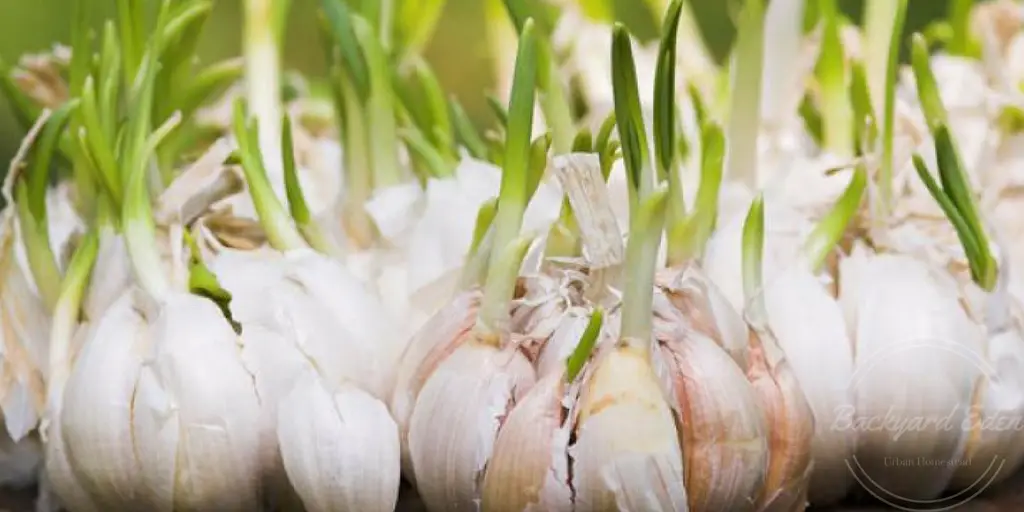
To plant garlic, break apart a head into individual cloves. Plant the cloves in a sunny, well drained bed, with the root side down. Push the cloves into the soil so that the tops of the cloves barely stick up above the ground. Space them about 3-4 inches apart. Keep them watered and they’ll sprout before you know it.
When it’s time to harvest, leave some of the smaller plants in the bed to die back. They’ll come up again the following year, and provide a new crop.
6.Strawberries
Although not a vegetable, strawberries make a great addition to your backyard vegetable garden. As a perennial fruit that also acts as a great ground cover you will be able to have fresh strawberries for several seasons. Strawberries can be planted as crowns to add a valuable and delicious crop into your garden. There are many different varieties that suit different zones so be sure to check your local Ag extension to see what grows best in your area.
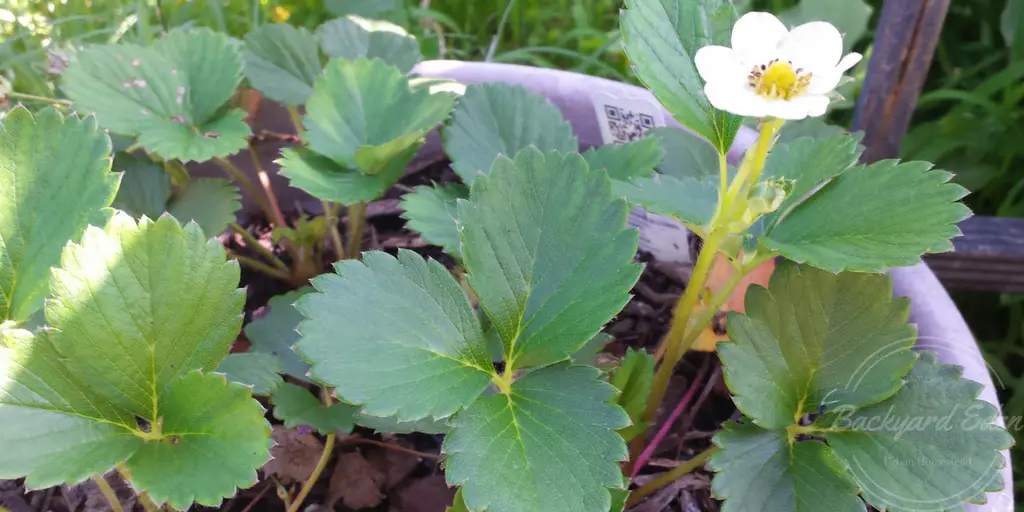
Strawberries are super flavorful and incredibly good for you. They can be used in a variety of different dishes. Strawberries also can be quite expensive at the market so growing your own at home is even better.
7.Scarlet runner beans
While most beans are known to be annuals, if you reside in zone 6 or above scarlet runner beans can be planted as a perennial. As the name suggests, scarlet runner beans will vine and climb up any trellis you provide. When cooler weather sets in, cut the vines back and mulch them until spring. When spring comes they will come back with new growth. They can be enjoyed fresh like green beans, or allowed to mature and dry to be cooked later in soups and stews.
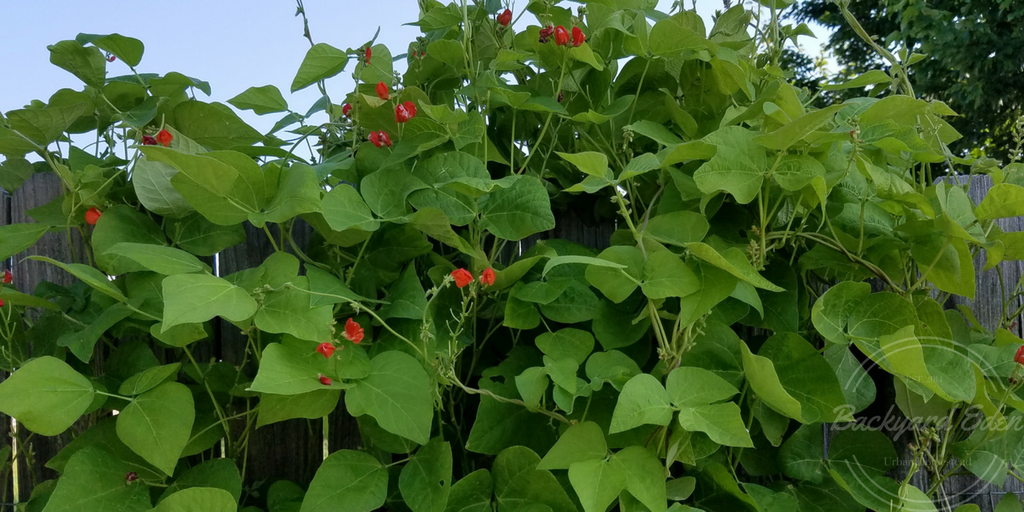
Tip: My Scarlet Runner beans have exceeded 8 feet tall so make sure to have a strong, sturdy trellis for them to climb on.
8.Perpetual Spinach
Perpetual spinach is actually a chard but is very similar to true spinach in flavor. We prefer it as it is much easier to grow and far more vigorous than true spinach. It also has the advantage of constantly producing a new crop when picked and so is ideally suited to gardening in a small space.
It’s a biennial that is grown as an annual for its big crinkly leaves. The stalks are red or white with large, dark green leaves that can be used as lettuce is used.
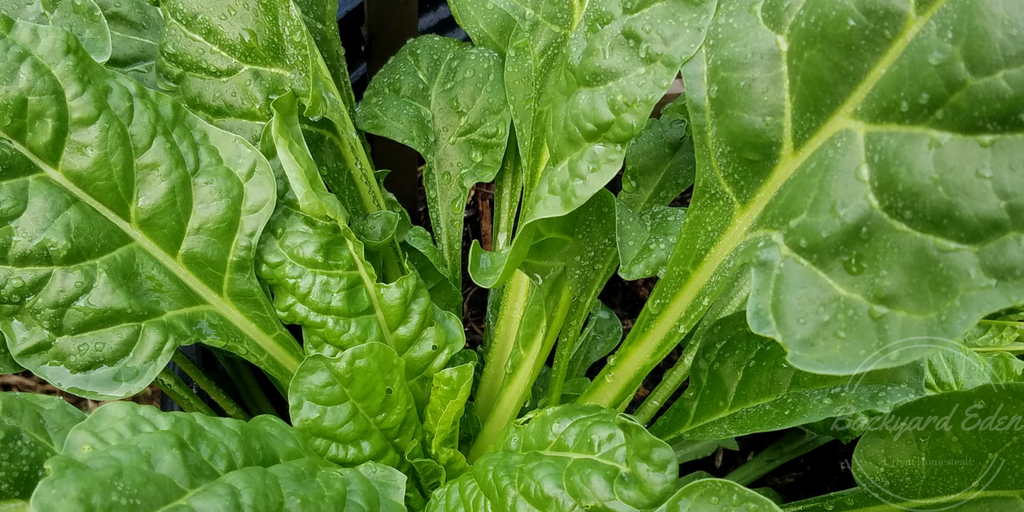
Note: Perpetual is not a perennial. However in my climate, I have had stands of chard grow and produce for 3+ years.
9.Swiss Chard
Swiss chard is a leafy vegetable that favors colder weather. It isn’t difficult to grow, but does require some maintenance as trimming the leaves frequently helps improve Swiss chard’s flavor. Chard is not a normal perennial but rather a bi-ennial and prefers well-worked soil with good drainage with plenty of organic matter. The crop needs enough water to keep the leaves growing quickly, so keep the soil moist at all times.
In selecting the location, you can plant Swiss Chard in the shadier parts of your garden and it still manages to produce a good harvest.
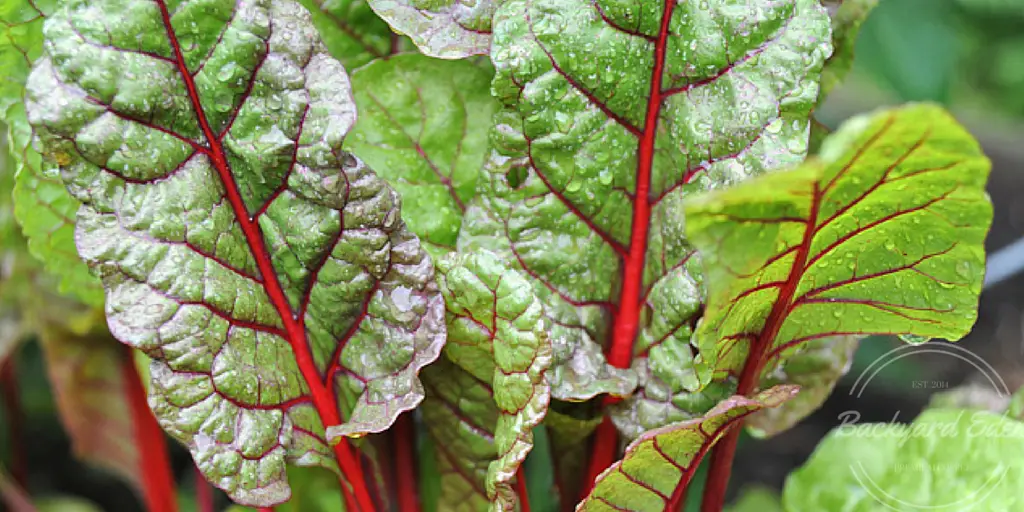
We love chard in any dish that calls for spinach. The leaves and the stalks can be eaten fresh or cooked, which makes this a very versatile veggie and a must grow.
Note: Swiss chard is not a perennial. However in my climate, I have had stands of chard grow and produce for 3+ years.
10.Leeks
Leeks are one of the hidden gems of the gardening world. They are underrated to some and a must grow for others. They are a definite must grow for our garden every year. Leeks are members of the allium family and have an incredible flavor which makes them perfect for cooking.
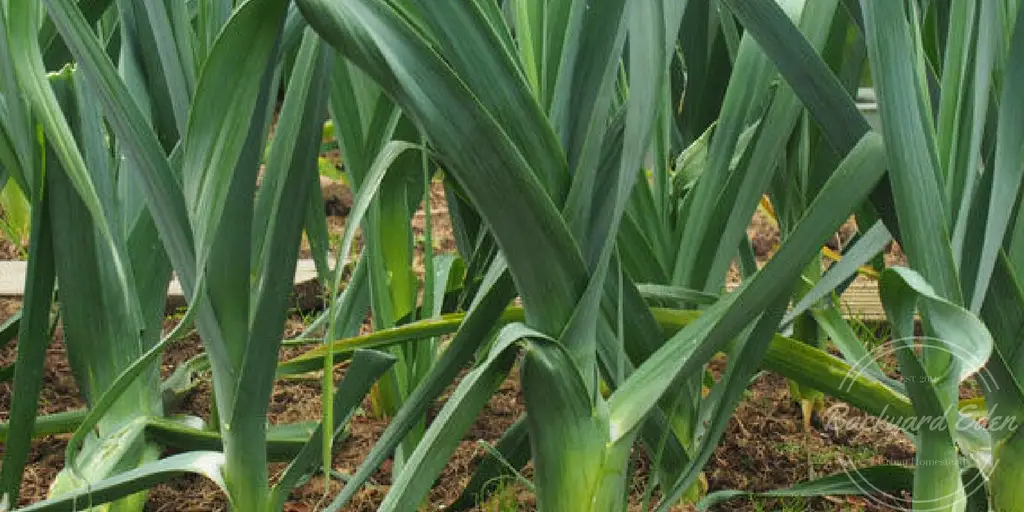
Leek varieties tend to be limited at your local garden center so starting them from seed may be your best option. Growing them from seed can be fairly easy and very rewarding. You can find some great varieties at online seed suppliers.
There are tons of options out there when it comes to perennials so try something new and see what happens. Whether you add a new berry bush or some Jerusalem artichokes, you will be pleasantly surprised at how easy it is to grow them and get a great harvest.
Also, check out our article on Top 5 Weeds to Grow or Best Herbs to Grow!
Be sure to Like us on Facebook and Follow us on Instagram and Twitter!
